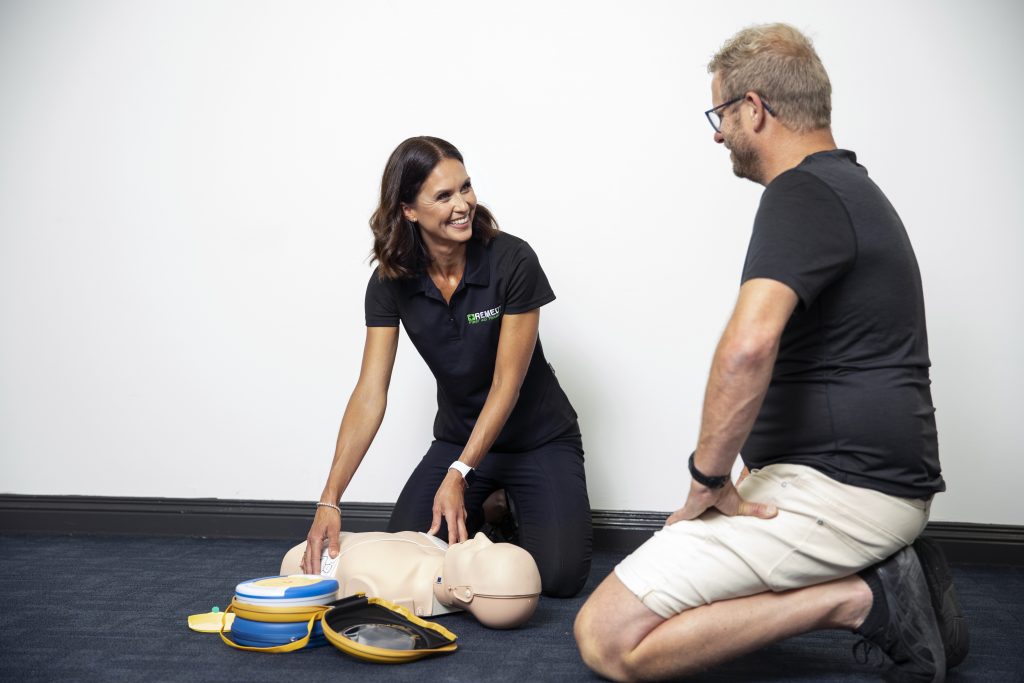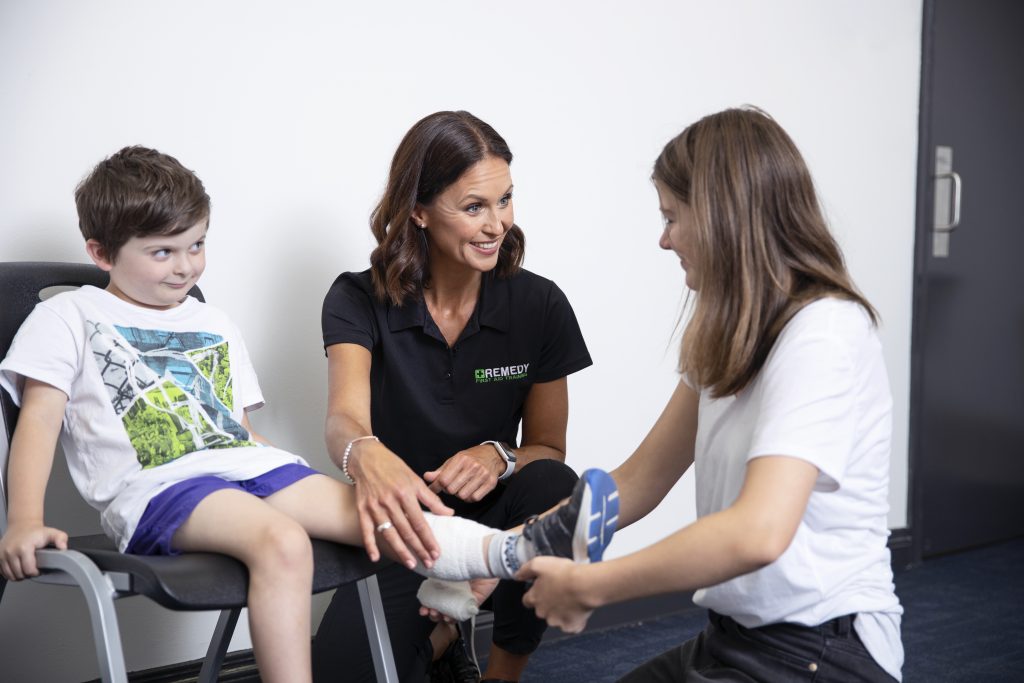
Some people resent having to do annual First Aid updates. Some recognise the need, others really enjoy it. No matter where you sit with regards to First Aid training there are several important reasons for completing regular training:
- Life-saving skills: First aid training equips you with the knowledge and skills to provide immediate care in emergency situations. Prompt and effective first aid can save lives, prevent further injury, and stabilize the condition of an injured or ill person until professional medical help arrives.
- Increased confidence: By completing regular first aid training, you gain confidence in your ability to handle emergencies. This confidence then enables you to take quick and decisive action, ensuring the best possible outcome for the injured or ill person.
- Preparedness: Accidents and medical emergencies can happen anytime, anywhere. First aid training prepares you to respond effectively in a wide range of situations, such as choking, cardiac arrest, bleeding, fractures, burns, and allergic reactions. Being prepared can make a crucial difference in the outcome of an emergency.
- Minimizing harm: First aid training emphasises the importance of preventing further harm or injury. By knowing how to assess and manage different situations, you can minimize the risks associated with accidents or medical emergencies. You also learn about potential hazards in their environment and can then take appropriate measures to prevent accidents from occurring in the first place.
- Immediate response: In many emergency situations, the first few minutes are critical. By completing regular first aid training, you become familiar with the immediate steps to take when faced with a medical crisis. This includes assessing the situation, providing necessary interventions, and contacting emergency medical services, if required.
- Community well-being: First aid training extends beyond individual benefits. When more people in a community are trained in first aid, the overall safety and well-being of the community improve. Quick response and effective care provided by trained individuals can make a significant impact in saving lives and reducing the severity of injuries until professional help arrives.
- Workplace requirements: Many workplaces require employees to have basic first aid certification. This is particularly true for high risk occupations or those where employees have a responsibility for the safety of others, such as healthcare professionals, teachers, lifeguards, and construction workers. Regular first aid training ensures compliance with these workplace requirements and helps create a safer work environment.

Overall, completing regular first aid training ensures that individuals are prepared to respond effectively in emergency situations, potentially saving lives and reducing the impact of injuries or illnesses. It promotes safety, confidence, and a sense of community well-being.
We believe that First Aid skills are life skills, which everyone should learn. And relearn. Training is not a one-time thing, it does need to be repeated. Best practice management and guidelines change over time and many of the learnt skills are perishable. By completing regular updates, you are staying up to date with current First Aid guidelines and ensuring that your skills are up to speed. Saving someone’s life is not something you will regret, but you will regret knowing how to.
Ask yourself, how confident am i that i could be useful and assist if there was a first aid emergency? Do i remember what to do if my baby is choking? Or my partner collapses? Would i recognise the signs of anaphylaxis? Hmm, so does that First Aid class you took 20 years ago still stack up….?
If the answer is NO or it’s been a while, it’s time for your update, so give us a call. Otherwise we’ll see you at your annual update soon 🙂
